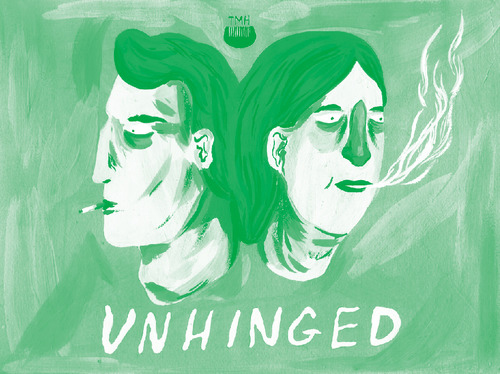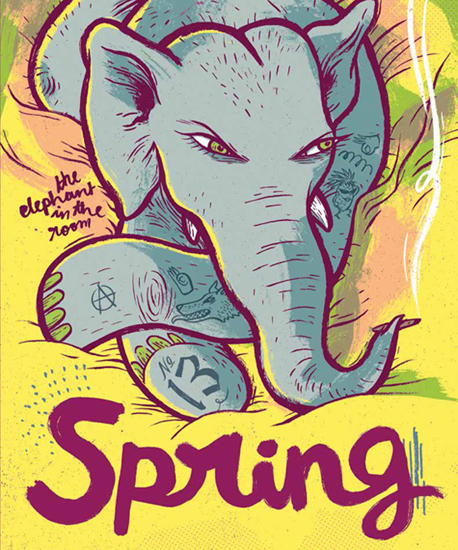Collectives: Challenges and Difficulties

Tieten met Haar – ‘Unhinged’ 2014
There are many different attitudes towards collectives, to get a more accurate idea of how they function and succeed, Allie Oldfield talks to UK based and overseas collectives asking them about the challenges they encounter.
Although the rewards can be great, keeping a collective together certainly isn’t easy. Often those involved cannot physically meet at times, they may have paying jobs that keep them occupied, or the shared interest that started the collective in the first place just isn’t there anymore. Collaboration is a group effort that takes time, money, compromise and contribution. Here’s what Tietan Met Haar, Clay Collective, Biografiktion and more have to say about the challenges with working together:
Tietan Met Haar – Belgium
I guess the biggest challenge was separating friendship from work, and not letting things get mixed up. It can be overwhelming living, and working, and going out, and being non-stop together, and sometimes it’s a bit hard to take a step back and separate the private from the professional. But this was and is an advantage as much as a disadvantage, so balancing it all out is a bit hard at times.
Another challenge is finding funding for our projects. When we started TMH we were all still students, so we could afford to use our free time for unpaid projects, and spend so much on TMH. But now we all have jobs, and work on our own books, so sadly we have to divide our enthusiasm and make compromises. We don’t make any profit with TMH, and as much as we have the will to put our time and energy into it, in reality we still have to pay the bills.
Nous Vous – UK
There’s so many challenges. Financial issues with how to share earnings and what’s the most ethical, honest way of doing this. Feeding personal interests and egos. All wanting to work on more exciting projects and not on less exciting ones. Sometimes not agreeing with a particular direction on a project. Mitigating this and the new challenges that you face week to week is part and parcel of collaborating, and really something that makes you much stronger and more diplomatic through compromise.

Spring Magazine #13, ‘The Elephant in The Room’, 2016
Spring Magazine Collective – Germany
It’s challenging to respect everyone’s sensitivities, re-discussing things over and over and investing time in a project that secures no income on a personal level.
Clay Collective – UK
Organising 12 people with busy schedules will always have its logistical challenges, but the benefits far outweigh the admin!

Peepshow Collective – Published Anthology, photo by Jere Salonen
Peep Show UK
At first all being illustrators was a real strength but as you progress you realised that you need people with other skills and interests. The fact that none of us are particular business minded or interested in PR means that we can be happy getting on with work but forget that at some point we need to get some more or remind people what we do.
Biografiktion – Germany
The biggest challenge is time. We are three individual illustrators, each one doing their own things.
In our next ‘Collectives’ article, we discuss what makes a collective successful.
With thanks to Tim Blann for his research and contribution to this article. Special thanks to Paul Paetzel of Biografiktion, Luke Best of Peepshow, Stephanie Wunderlich of Spring Magazine Collective, Math and Jana of Tieten Met Haar, Jay Cover of Nous Vous, Elisa Caroli of LÖK Zine, and Sophie and Emma of Clay Collective for their responses and insight.
Back to News Page
